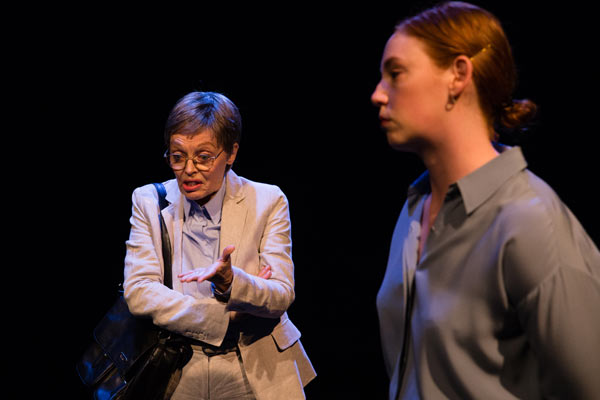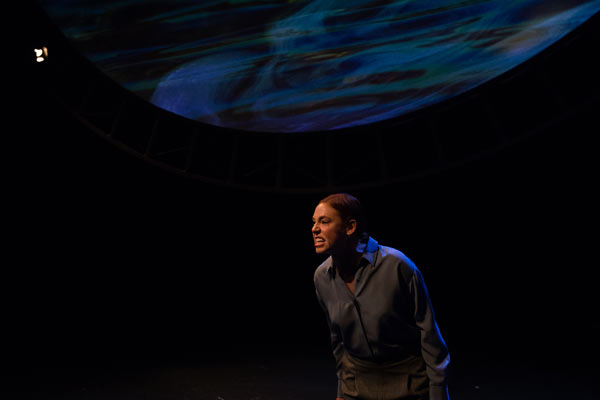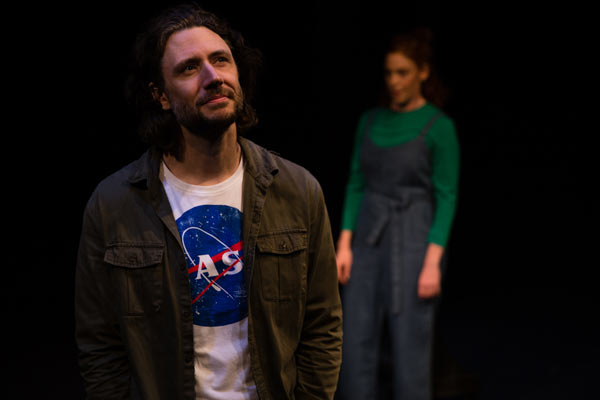Alana Valentine’s award-winning script is a beautifully-crafted statement of support to women in science, brought to life by the wonderful chemistry of its cast.
There is undoubtedly much hype surrounding Alana Valentine’s new play presented by Sport For Jove, and fairly so. It is the product of extensive consultations with scientists from the CSIRO Parkes Radio Observatory to Oxford University, considering contemporary issues relating to astrophysics, gender equality, and the daily life of a scientist. Blending performance poetry, radio astronomy, workplace hierarchies and the internalisation of one’s own victimhood into a story about the writing of a seemingly innocent poem, there’s a lot of elements that could be overdone, under-addressed, or just plain lost in between all these complex layers.Thankfully, the show works.
I'm certain Alana’s script will pick up even more acclaim than what it already has, and I am more than happy to add to that it is a tight piece of work that turns its PhD-level scientific foundations into an accessible concept for a non-STEM educated audience. Its emphasis on duologues, occasionally interrupted by moments of mesmerising performance poetry, keep the plot progressing at an engaging pace without distracting the audience. Even though the performance lacks an interval, there is never a dull moment at any stage in its 90-minute duration.

Image © Kate Williams
However, an interval from some of the acting may be preferred. Tim Walter's overly dramatic performance as Daniel Singer has an unusual lack of realism which fits his recital of the aforementioned performance poetry but felt out of place elsewhere in the story. Luckily, much of this is avoided by the rest of the cast. Belinda Giblin as the cheated (but nonetheless successful) female scientist Geraldine Kell-Cantrell is a joy to watch in her role, subtly weaving a web of influence over the play’s actions from afar. Gabrielle Scawthorn as Martina Addeley, the cheated PhD student and subject of Singer’s poetry, gives a performance that connects strongly with the audience as she rebels against the credit-stealing norms of the system.
It would be unfair, however, to not give top credit to the immensely watchable Christopher Stollery. Primarily taking on the character of Steven Sarvas, observatory director and hijacker of Martina's miraculous discovery, but also an unnamed Uber driver and book launch organiser, he manages to deliver the most nuanced and entertaining performance. Bar some very minor physicality issues early on in the play, it is incredibly satisfying to watch him steal scenes with a blend of humour and manipulation one wouldn’t expect from a stereotypical scientist. Bravo.

Image © Kate Williams
From a production perspective, director Nadia Tess uses the Seymour Centre’s facilities to their utmost without hindering Alana’s script. Unlike previous Jove shows, there are far less props or set pieces. In fact, there are only two memorable set pieces from designer Shaun Gurton – a glass panel on wheels, and what appeared to be half a satellite dish centre stage left, taking up a considerable amount of one's view of the stage. Even though it stays for the entire performance, there was never a discernible reason for it to be there in the first place. References to what it projects are limited, its actual inclusion in any action even more restricted. Sound and Music Designer Dan Nixon’s gentle additions to this action add a subconscious tension, deftly playing in the background in order to not detract from the dialogue’s already powerful nature. With Lighting Designer David Parker’s mirroring of this, much of the production elements are slight, but sophisticated.
Ultimately, there is much to praise in 'Ear To The Edge of Time'. Do yourself a favour – come for the show, stay for Geraldine's, Gabrielle's, and (most notably) Christopher's performances, and leave knowing more about the world we live in.

